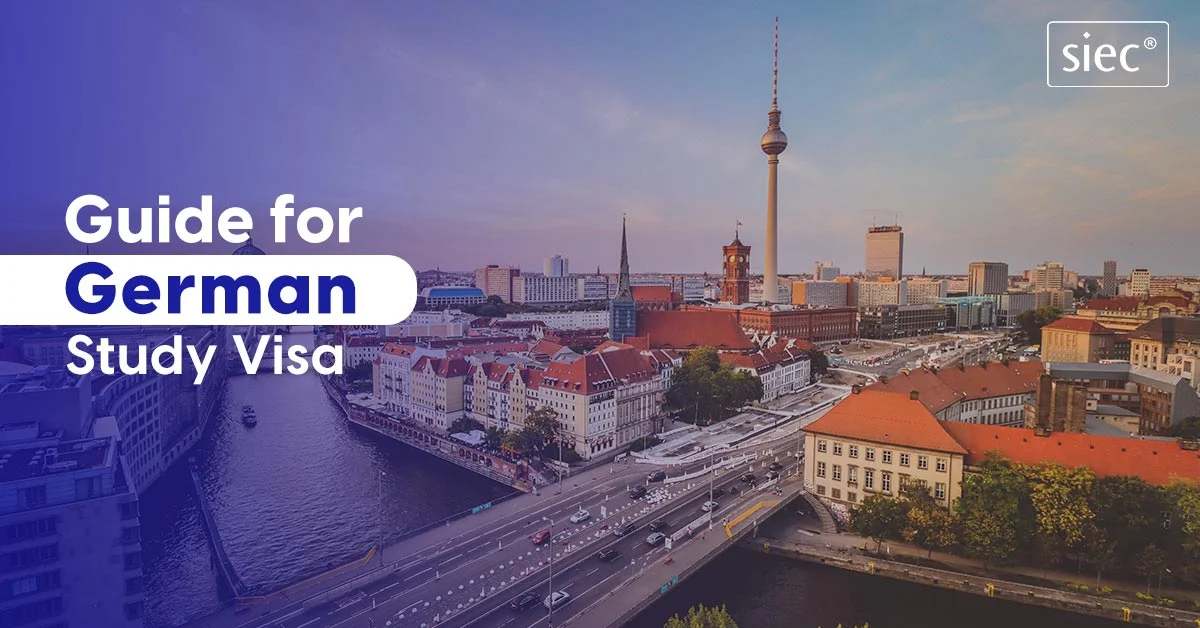
Updated On: 15 October 2025
Guide for German Study Visa
Many of the most brilliant and well-trained individuals from around the world are drawn to Germany's leading institutions and their extensive offering of STEM degrees. Furthermore, studying in Germany is rather affordable compared to other well-known locations for pursuing international education. This might explain that the European nation is home to many free public universities in Germany.
Rear More: Tips to Choose the Best University and Right Courses to Study Abroad
However, in order to begin your further study in the "nation of ideas" you must get a student visa for Germany. Let's examine the various visa categories and the necessary applications.
Read More: Germany Ranks Second-Best European Destination for Higher Education for 2025
Types of study visa in Germany
There are various types of student visas for Germany that you can select from depending on your length of stay and the timing of your application:
The Schengen Visa
The most common type of international visa issued to citizens of other nations is a Schengen Visa, which is eligible for a 90-day stay. A Schengen Visa application can typically be submitted by many students enrolling in short-term programmes like language training, training, and foundation courses.
National Visa
Since they last longer than three months, bachelor's, master's, and PhD programmes fall under the category of long-term study programmes, necessitating the need for a national visa. In extreme conditions, the validity may be extended from three months to one year.
See Also: Opportunity Card Germany
Student visa
A subcategory of the national Visa category mentioned above is student visas. It also includes the subsequent types:
General Student Visa: Students are considered admitted students if they have already received an unconditional offer of admission from a German university for the pursuit of master's, doctoral, or postdoctoral level degree programmes or if they have already received an offer of a full scholarship for higher education in a recognised German institution.
Prospective Study Visa
You may apply for a prospective student visa if you are awaiting the outcome of your application for admission to a German institution or are scheduled to take an entrance exam. If you receive an admissions offer from a higher education school or enrol in a foundation course or preparatory German language course during this time, your validity will be extended for an additional six months.
You might also like: How to Study in Germany?
How long does it take to secure a German student visa?
Following the application deadline, processing a long-stay student visa for Germany could take 6–12 weeks. At the same time, judgments about short-term study visas are frequently made within 15–30 days by German foreign embassies overseas.
See this also: Scholarships in Germany for International Students
Conclusion
If you want to apply for a German study visa, connect with SIEC Germany experts to learn about the document checklist and the application process.
Reach out to SIEC for Application inquiries and assistance.
Read more insightful articles:
Germany soars as Top Destination for Indian Students
Why Germany Should Be Your Next International Career Move?



Comments (0)
Leave a Comment